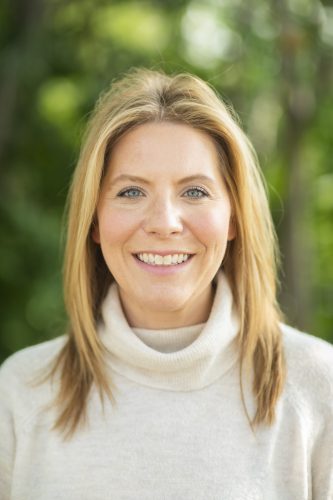Friday Focus: Pre-pandemic and post-pandemic values
February 4, 2021

— by Julie Queen, vice chancellor for Administrative Services
When we get “back to normal” is a statement I hear more often now that vaccines for COVID-19 are circulating and conditions are slowly starting to improve. I’m optimistic about our progress, but it makes me wonder: What is “normal” anymore? Does “normal” mean we disregard the things the pandemic has taught us to do differently? What are the pre-pandemic things we value and want to reinstate, and what things should we let go of to make room for new, post-pandemic values?
I recently read an opinion piece in University Business magazine. It got me thinking about what we at UAF have learned during the difficult time, and how we use it to move forward. The author shares her view that “‘Back to normal’ is a clarion call to be regressive in our thinking. ... The pandemic has caused significant disruption, but not all disruption is bad. … This is the purpose of a university, to lead the change into new terrain.”
Yes, there are silver linings! The question is, are we capitalizing on them to open new doors?
COVID-19 has, for many, meant unexpected time with close family members or children. This time, although not always easy while juggling professional commitments, is a gift. Casual conversation now contains acknowledgement of mental health and self-care, and is a high priority. Wellness initiatives and time spent outdoors are encouraged, away from devices. These are things we should carry with us post-pandemic to remind us that we are human, when socially distant can hopefully be a thing of the past.
When I look around at UAF, much innovation has occurred in this tremendous pivot. Last March when the decision was made not to offer face-to-face options, Summer Sessions was in the midst of registering children for over 69 summer day camps. Instead of focusing on what they couldn’t do, they focused on what they could and created virtual day camps via Zoom and YouTube, and sent kits home for hands-on activities. The surprising part was that local families were hungry for this content and a statewide audience blossomed. In August, Summer Sessions turned those camps into the 365 SMART (Science, Math, Art, Recreation, Technology) Academy, providing 17 virtual enrichment classes for the K-12 home schools throughout Alaska. In the fall they had an enrollment of 167. For spring 2021 they have 49 courses and over 420 students registered serving people in Alaska, Hawaii and the Lower 48. Now that’s SMART!
UAF also recognized that many Alaska families are more financially stressed. It is exciting that we are rolling out two major four-year scholarship programs: Nanook Pledge and Nanook Commitment, which are merit-based and need-based respectively. These scholarships are arriving just in time making higher education at UAF more attainable than ever. With 45 high-quality, fully online programs, we are in a good position to provide these new learners excellent pathways to new opportunities.
This week, I participated in a kick-off meeting to consider UA’s post-COVID-19 workplace. This team, sponsored by UA Human Resources, is made up of representatives from each university and the system office. The charge is to take input and propose options as we return to our workspaces. This will be in traditional ways, and may also allow for greater flexibility with remote working arrangements that help employees and supervisors feel productive, supported and safe. This effort is just beginning and the initial discussion is progressive and thoughtful. Please feel free to contact me, Provost Prakash, Wade Albright or Lisa Piechocki if you have questions or input. I look forward to sharing more as this develops and will work to ensure that “back to normal” means taking with us the innovations emerging from the pandemic where new doors may be opening.
Friday Focus is a column written by a different member of UAF’s leadership team every week. On occasion, a guest writer is invited to contribute a column.


